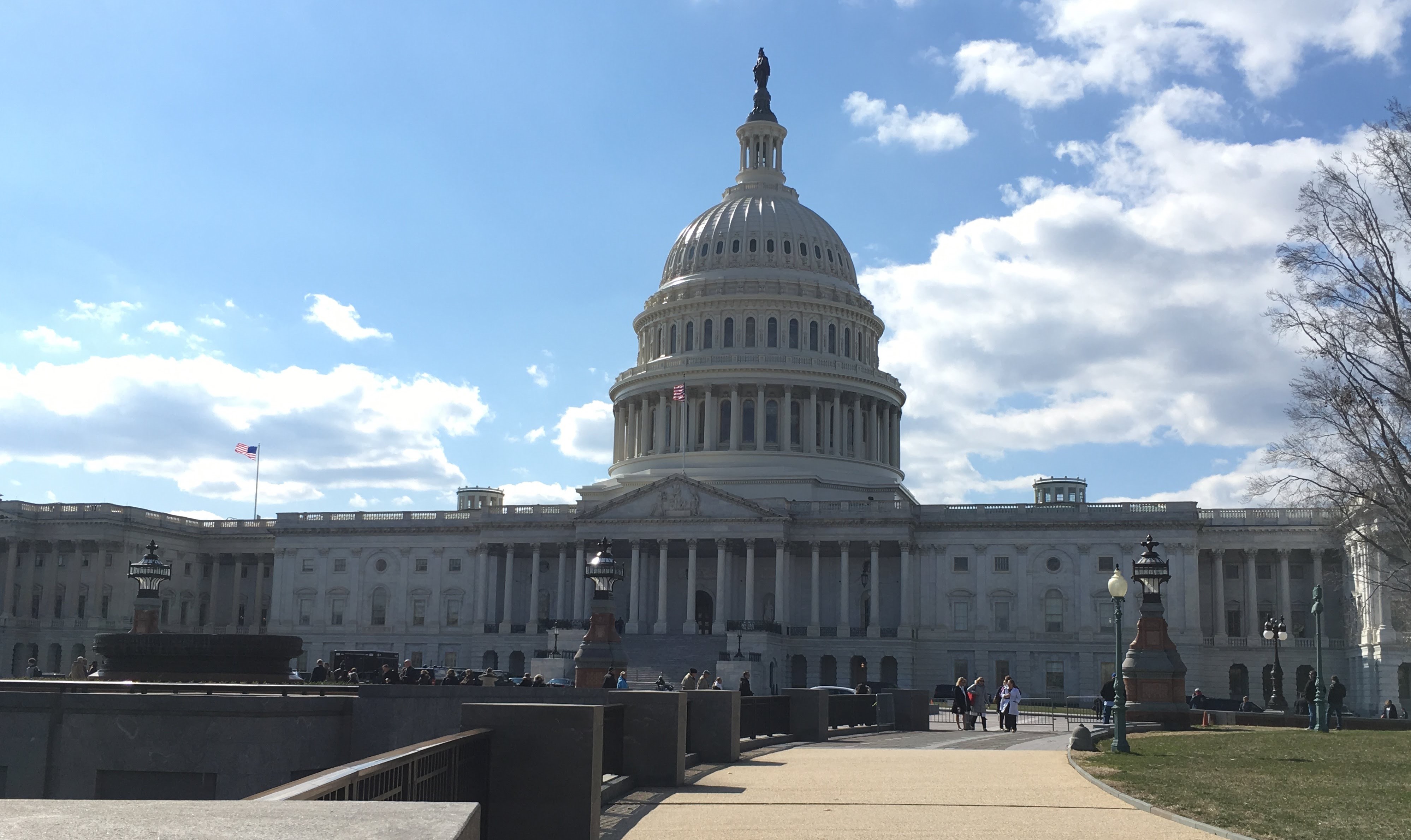March 31, 2020 | Clara Keane
The President signed into law the Coronavirus Aid, Relief, and Economic Security Act or the CARES Act (H.R. 748), the largest economic stimulus package in U.S. history, on March 27th. This third relief package invests over $2 trillion in stimulus funds to support state governments, businesses, and individuals through this crisis. As negotiations came to a close, the nation learned that more than three million Americans filed for unemployment the week prior, and the U.S. surpassed China in reported number of coronavirus cases.
Throughout this process, the AATA has been working closely with our mental health coalition partners in Washington, DC to make sure that lawmakers address the needs of mental health providers and their clients. While the CARES Act does not make all the changes we have been asking for, we applaud Congress for passing this legislation to support our communities. We will continue to pressure Congress to keep mental health workers and people with mental illness as priorities in subsequent relief packages.
Below are some highlights of the bill and resources to find more information. Given the dynamic nature of this crisis and how this package will be implemented, we encourage you to do your own research on areas that will affect you, your community, and your clients.

Supporting those with Mental Illness
- Includes $425 million for Substance Abuse and Mental Health Services Administration (SAMHSA) programs, including:
- $250 million for Certified Community Behavioral Health Clinics
- $50 million for suicide prevention programs
- $100 million for mental health and substance use disorder emergency grants
Telehealth
- Repeals the Medicare requirement that only allows a health care professional to see a patient via telemedicine if they have previously seen that patient within the past three years. (Source: AHA)
- Expands Department of Veterans Affairs mental health services delivered via telehealth, including for case managers and homeless veterans in the U.S. Department of Housing and Urban Development-VA Supportive Housing (HUD-VASH) program. (Source: NAMI)
- Waives restrictions during this crisis on Federally Qualified Health Centers (FQHCs) and Rural Health Clinics (RHCs) that prohibits them from serving as distant sites. Specifically, during the emergency period, FQHCs and RHCs will be able to serve as distant sites to provide telehealth services to patients in their homes and other eligible locations. (Source: AHA)
- Allows hospice recertifications to be completed via telehealth, rather than a face-to-face visit, during the emergency period. (Source: AHA)
- Reauthorized the Health Resources and Services Administration (HRSA’s) Telehealth Resource Centers grant program at $29 million a year for fiscal years 2021-2025. (Source: H&K)
Supporting Small Businesses
- Provides loans of up to $10 million for qualifying small businesses of fewer than 500 employees through the small business interruption (SBI) loan program. The SBI loans may be used to cover payroll, mortgage/rent, and payments on debt obligations. If approved for this loan, fees would be waived for the borrower and lender. The SBI loan would be eligible for a loan repayment deferment and loan forgiveness. (Sources: ACA and NYT)
Student Loans
- Provides for automatic payment suspensions for any student loan held by the federal government until September 30th, in addition to the two month suspension of interest announced by the Department of Education on March 20th. (Source: NYT)
Individuals and Families
- People with adjusted gross income up to $75,000 ($150,000 married) are eligible for a $1,200 ($2,400 married) rebate, plus an additional $500 per child.
- Provides all eligible workers with an additional 13 weeks of unemployment insurance benefits, beyond state unemployment benefit period, which is 26 weeks in many states. The extra $600 payment will last for up to four months, covering weeks of unemployment ending July 31.
- Includes many more workers than are usually eligible for unemployment benefits, including self-employed people and part-time workers. Under the plan, eligible workers will get an extra $600 per week in addition to their state benefit. (Source: NYT)
AATA’s Coalition Work
Throughout this process, AATA worked in coalition with mental health organizations, specialized instructional support personnel (SISP) in schools, arts organizations, and others. The work continues, especially as we can expect additional relief packages, and clarifications to the CARES Act. Here are further details of our efforts:
- We joined our Mental Health Liaison Group (MHLG) colleagues in urging Congress and the Administration to include mental health and substance use clinicians and professionals in priority testing for COVID-19; issue guidance to support remote recovery support groups; launch a special enrollment period for commercial health insurance in the healthcare.gov marketplace during this crisis; pass, implement, and/or provide funding to strengthen crisis services and surveillance; and pass and implement reforms to ensure long-term availability of care, especially for populations at higher risk of self-harm or substance misuse. Read the full letter sent to Congress and the Administration on March 20th.
- As a member organization of the National Alliance of Specialized Instructional Support Personnel, we joined our colleagues in urging Congress to reject any effort to provide the Secretary of Education with blanket waiver authority for the Every Student Succeeds Act (ESSA) or the Individuals with Disabilities in Education Act (IDEA). The letter makes clear that while we do not support a blanket waiver of IDEA protections for students with disabilities, Congress can, and should, allow for some targeted flexibility in legal requirements to allow for creative problem solving and implementation of innovative solutions that ensure all of our nation’s students have access to learning opportunities while schools remained closed. Read the full letter sent to Congress on March 20th.
- We joined Families USA and a variety of national and state mental health organizations urging Congress to include at least $150 billion in direct aid to states for fiscal relief and an emergency increase of 12 percent to Federal Medicaid matching funds as they deploy their resources to address critical health needs and absorb the related economic crisis. Read the full letter sent to Congress on March 23rd.
- As a member organization of the Mental Health Liaison Group (MHLG), we joined our colleagues in urging all states to temporarily lift restrictions on telebehavioral health at all levels of care by telephone or video for individuals regardless of insurance plan and ensure payment parity until the conclusion of this national emergency. Read the full letter sent to state governors and insurance commissioners and to Congress on March 25th.
Additional Resources
- Information On The CARES Act For People With Mental Illness – National Alliance on Mental Illness, March 27, 2020
- National Association of State Mental Health Program Directors – Weekly Update, March 27, 2020
- A.Q. on Stimulus Checks, Unemployment and the Coronavirus Plan — The New York Times, March 28, 2020.
- Keeping American Workers Paid and Employed Act – one-pager by the offices of senators Marco Rubio (R-FL), Ben Cardin (D-MD), Susan Collins (R-ME), and Jeanne Shaheen (D-NH)
- A $2 Trillion Stimulus Package Is on the Way: Here’s What’s in It for Business Owners – Inc., March 27, 2020
- Expansion of Telehealth During the COVID-19 Emergency (Update) — Holland & Knight LLP, Updated March 29, 2020
- Unemployment Insurance Provisions In The Coronavirus Aid, Relief, And Economic Security (CARES) Act Feact Sheet – National Employment Law Project (NELP), March 27, 2020
- Small Businesses Will Get Help Paying Workers, if They Can Wait – The New York Times, March 26, 2020.
- Perspective: What Does the CARES Act Mean for You and Your Clients ?– American Counseling Association, March 25, 2020
Clara Keane, Manager, Advocacy & Public Affairs
Clara supports our chapter state legislative and regulatory efforts and acts as liaison between the AATA and our partners in the wider mental health and arts communities. Clara also manages our bi-weekly newsletter Art Therapy Today.

